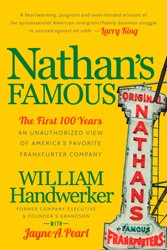Daniel Schulman’s The Money Kings is a well-researched economic history of the foundations of Jewish wealth and philanthropy in America. Men from the leading German Jewish families of the time — Schiff, Seligman, Lehman, Goldman, Sachs, and Warburg — are the main players. Today, their names are inscribed on countless New York cultural institutions, but do we ever wonder how their vast fortunes were built, in a world that fundamentally distrusted Jews?
Arriving in America in the mid-nineteenth century with Ashkenazi roots, these young immigrants studied the different economic landscape carefully, assessing the opportunities offered here. Some started as peddlers, moving up to warehousing and financing in the South’s cotton trade. Others began their careers by arbitraging currencies, then buying and selling debt. Before long, many had bought or built mansions on Manhattan’s Upper East Side. They supported their shuls and charities, celebrated the High Holidays, said kaddish, and observed other Jewish rituals as they pleased. Marrying non-Jews was not yet acceptable, and the spouses of daughters were often absorbed into the fathers’ businesses. Sons would attend Ivy League schools before landing apprenticeships at allied financial institutions. Operating in a world of largely unspoken antisemitism, they socialized mostly with each other, only mingling with select non-Jewish financiers and politicians (including J.P. Morgan and Woodrow Wilson) when making financial deals.
By keeping a low profile, these men could play strategic roles in major robber baron consolidations — for example, in railroad, oil, and sugar trusts — and still avoid a lot of anti-Jewish pushback. But the antisemitism was still there. After World War I, Henry Ford and Charles Edward Coughlin (commonly known as Father Coughlin) released the floodgates, calling Schiff and his associates world-dominating “Elders of Zion,” and the poison of prejudice flowed freely. Many of the so-called Money Kings retired in the aftermath of the 1929 stock market crash. Beyond their physical frailty, they couldn’t grasp the realities of Hitler’s rise to power, they were too fond of the Germany they remembered from their youth.
When Schulman describes the inevitable deaths of these financial patriarchs, readers may find themselves unexpectedly affected. This older generation was smart, picking their battles carefully and letting the small stuff slide. One imagines Schiff’s chutzpah, telling Tsar Nicholas II that he would have to let the Jews out, before Schiff would arrange loans for his government. The Tsar balked, and Schiff’s money helped Japan defeat Russia. Schiff listened to Lillian Wald’s plans for a settlement house and went on to finance it.
Financial history can be dry to some, but Schulman seasons his account with entertaining anecdotes. He’s alert to themes that resonate today, like Theodore Roosevelt’s diatribes against hyphenated identities, or his nativist attempts to limit immigration. While it’s Schiff who stands out, he’s well situated in the context of his network, so the reader gleans a fuller picture of turn-of-the-century American Jewish life and is shown a robust study of late nineteenth century, early twentieth century American financial history.
Bettina Berch, author of the recent biography, From Hester Street to Hollywood: The Life and Work of Anzia Yezierska, teaches part-time at the Borough of Manhattan Community College.



